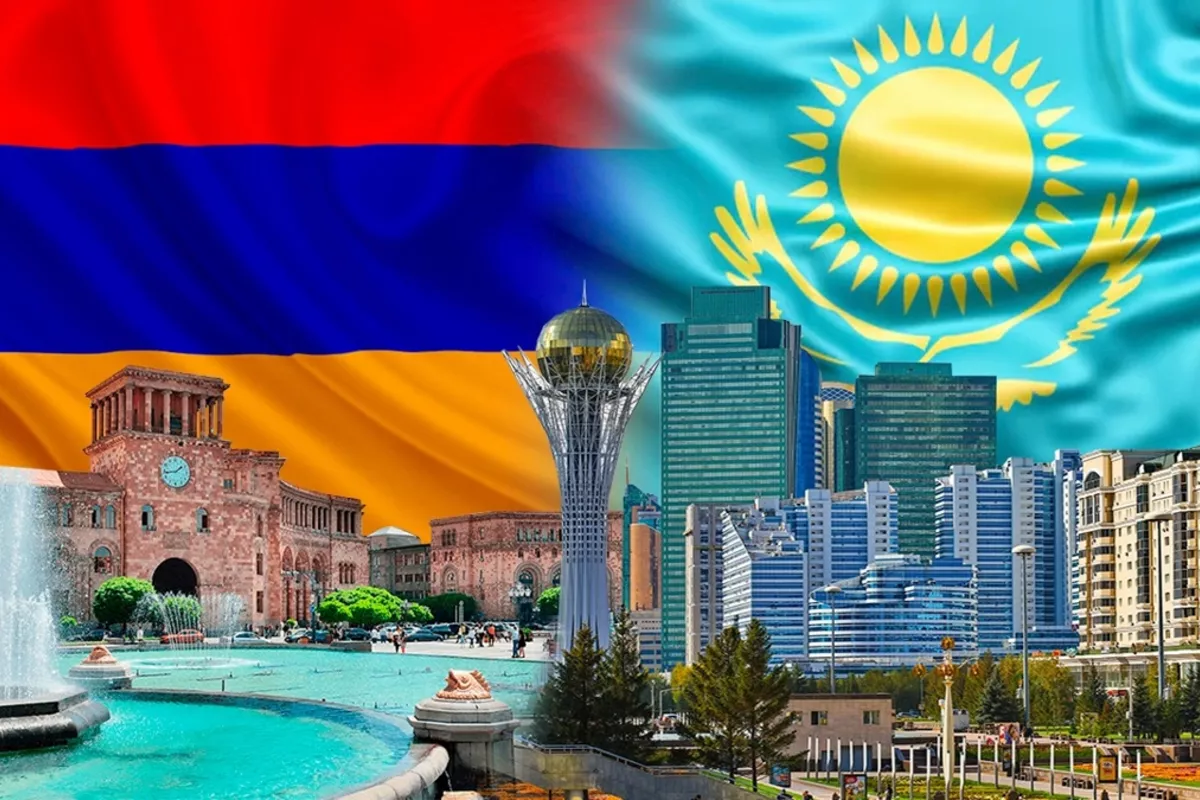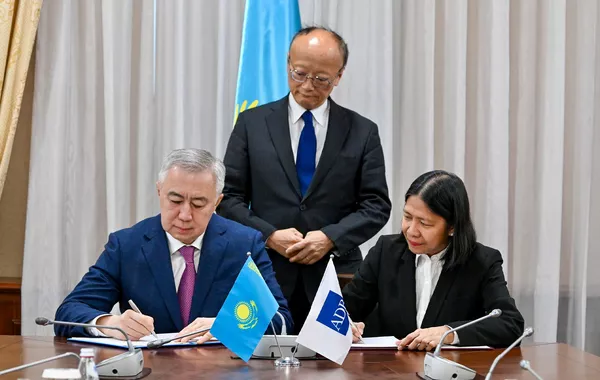
photo: Kazinform
Armenian Prime Minister Nikol Pashinyan’s upcoming official visit to Kazakhstan on November 20-21 is expected to mark a major milestone in the countries’ deepening bilateral ties.
As Astana and Yerevan prepare for high-level talks, Kazakhstan-Armenia relations appear to be transitioning into a new strategic phase, characterized by growing political trust, economic cooperation, and emerging regional connectivity opportunities, The Caspian Post informs via Kazakh media.
From diplomacy to practical integration
Since establishing diplomatic relations on August 27, 1992, Kazakhstan and Armenia have signed nearly 40 agreements, including the 1999 Treaty of Friendship and Cooperation. While early contacts were largely symbolic and maintained mainly within multilateral platforms such as the CSTO, EAEU, and CIS, recent years have seen a dynamic revival of dialogue.
Between 2023 and 2025, the two countries exchanged more than ten high-level visits involving presidents, prime ministers, foreign ministers, and parliamentary leaders. In 2024, the political momentum accelerated further following President Kassym-Jomart Tokayev’s visit to Yerevan and Armenian President Vahagn Khachaturyan’s visit to Astana. These interactions set the stage for new economic and technological priorities across the bilateral agenda.
Almat Toekin, an expert at Kazakhstan’s Institute of Foreign Policy Studies, describes Pashinyan’s upcoming visit as especially significant in light of the August 8 Washington peace agreement between Armenia and Azerbaijan. The agreement has created new transport and economic prospects-chief among them the TRIPP (Trump Route for International Peace and Prosperity), or modernized Zangezur Corridor, which complements the Middle Corridor and could enhance regional connectivity.
Kazakhstan welcomed the peace accord as a “historically important achievement.” Within months, Azerbaijan lifted transit restrictions for Armenian-bound cargo, and the first shipment of Kazakh wheat-15 wagons-arrived in the Armenian town of Ayrum. This pilot delivery marked the first practical outcome of the new regional logistics framework.
“When the President of Azerbaijan visited Kazakhstan, he announced in Astana his readiness to open transit corridors for Kazakh wheat supplies to Armenia. This has now been implemented,” Toekin said, noting that the peace agreement is already producing tangible results.
Expanding economic ties
Economic cooperation, once modest, is gaining momentum. According to the National Bank of Kazakhstan, Armenian foreign direct investments (FDI) in Kazakhstan totaled $20.6 million from 2005 to 2024, while Kazakh investments in Armenia reached $56.5 million. More than 400 joint enterprises operate in Kazakhstan, and over 100 Kazakh-backed companies work in Armenia.
Pashinyan noted in a recent interview that bilateral relations are now “acquiring a strategic nature,” based on principles of equality, mutual support, and respect for sovereignty.
Trade turnover, while still limited, is improving. From January to August 2024, bilateral trade reached $57 million, though this year’s figures remain slightly lower at just over $35 million. Analysts say fluctuations are structural rather than political.
Political analyst Zamir Karazhanov argues that trade potential is far greater: “Armenia’s economy exceeds $25 billion - larger than that of Kyrgyzstan, with whom Kazakhstan’s trade turnover reached $1.4 billion in 2024. Current figures do not reflect the true potential of Kazakhstan-Armenia economic relations.”
New cooperation in technology, education, and culture
Digital cooperation is emerging as a key area of collaboration. Both countries are preparing to integrate their digital ecosystems, share AI solutions, and develop e-government platforms.
Johnny Melikyan, head of the Department for the Study of International Relations at the Center for Public Relations and Information under the Office of the Prime Minister of Armenia, said that the two states have promising opportunities in artificial intelligence and smart city technologies.
Education ties are also expanding, with 16 Kazakh universities now linked to 16 institutions in Armenia through 19 agreements. Kazakhstan aims to build stronger academic cooperation, particularly in IT, law, medicine, and business.
Cultural exchanges continue under the 2024-2026 Cooperation Programs in Culture and Sports. The Abai Center at Yerevan State University, active since 2010, and major cultural events - including the Days of Kazakh Theater and concerts by Dimash Qudaibergen - have strengthened people-to-people ties. Kazakhstan is home to an Armenian diaspora of around 40,000 people, largely in the Mangystau region, playing a significant role in fostering mutual understanding.
Meanwhile, a recently ratified migration cooperation agreement allows visa-free travel of up to 90 days, boosting tourism, business travel, and cultural exchanges.
Looking ahead
Pashinyan’s visit to Astana, along with the meeting of the Intergovernmental Commission, is expected to advance new agreements in investment, logistics, technology, and humanitarian areas. Experts believe the two countries are moving from symbolic dialogue to practical integration, with new regional dynamics offering opportunities for deeper cooperation.
Earlier, the information went viral that Armenian Prime Minister Nikol Pashinyan will visit Astana on November 20-21 at the invitation of President Kassym-Jomart Tokayev.
Share on social media
